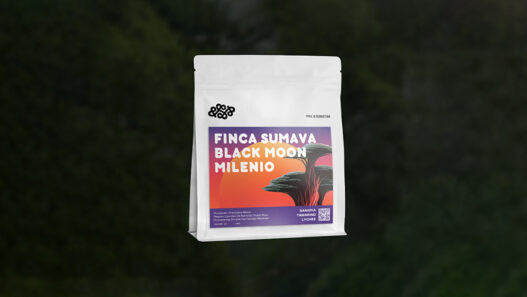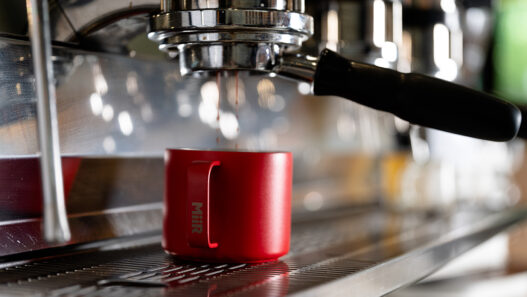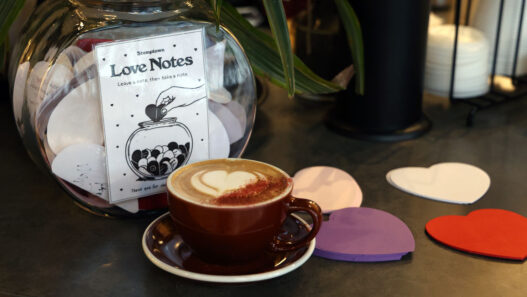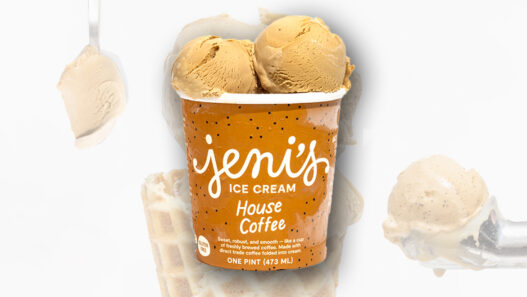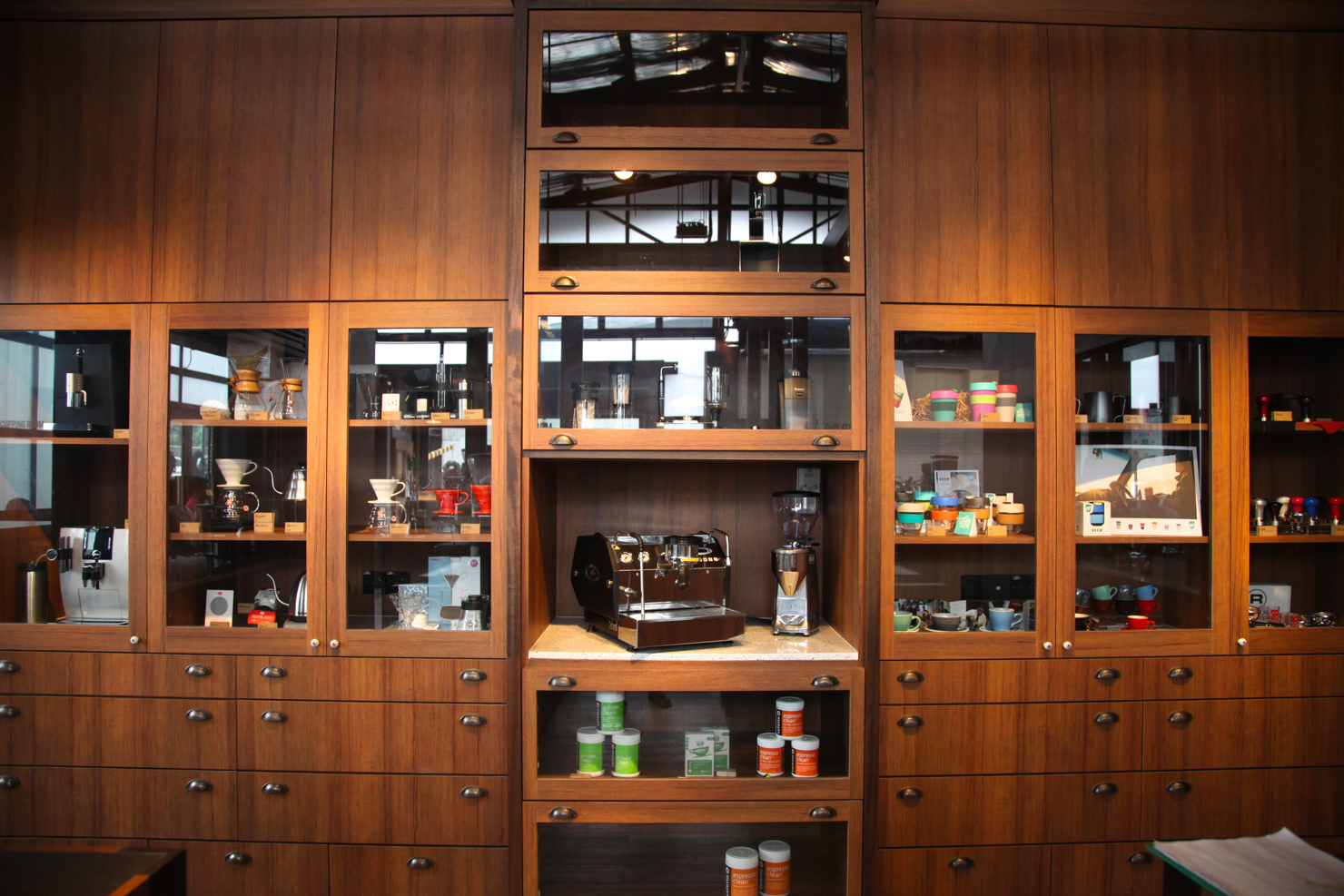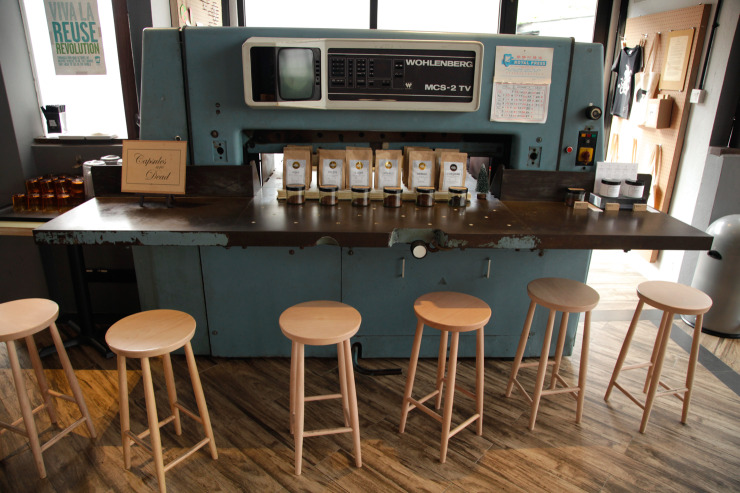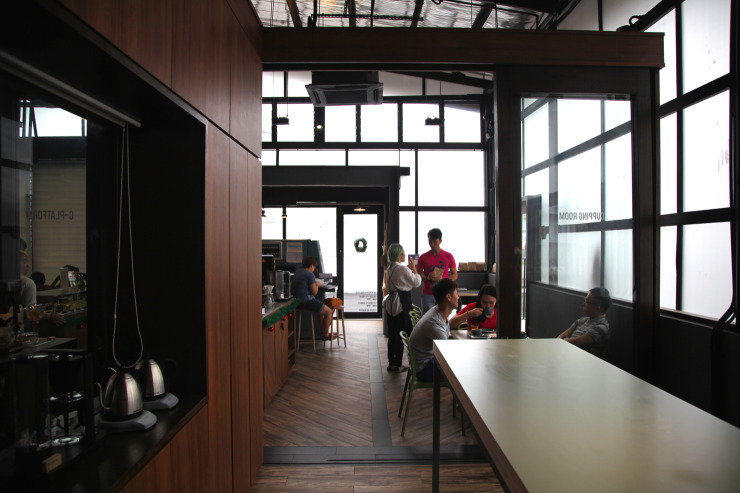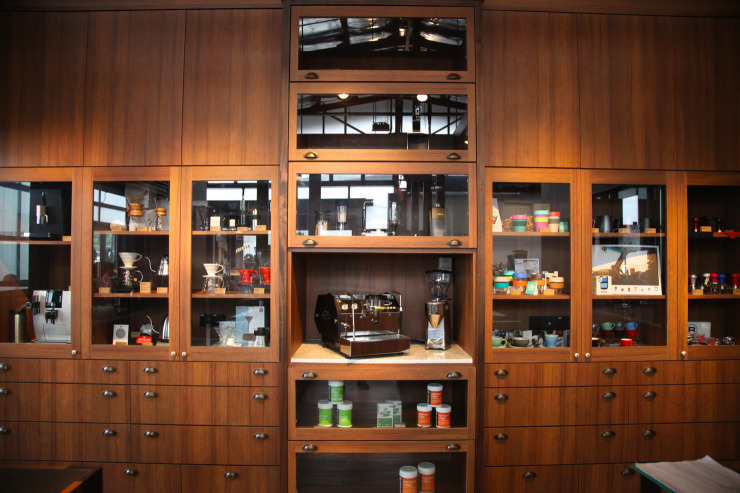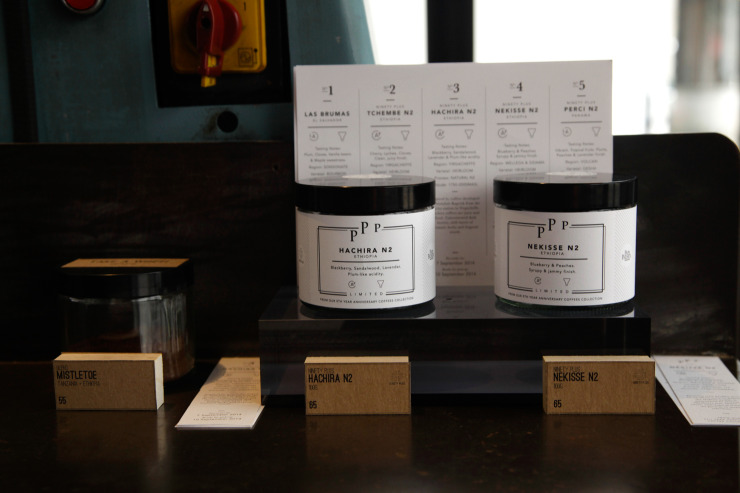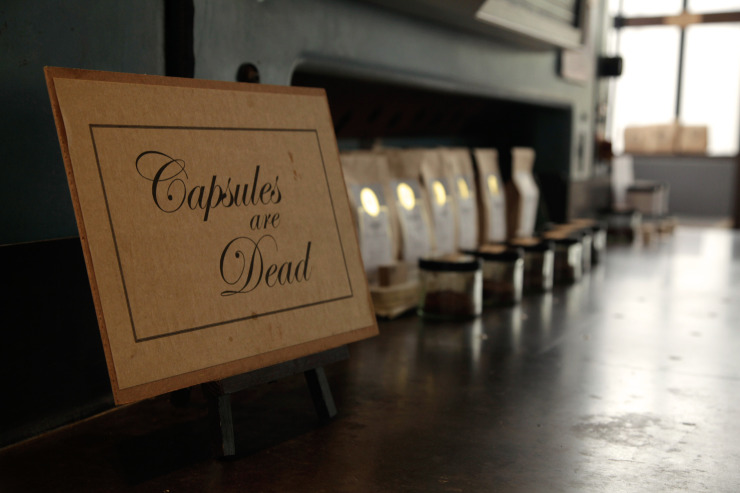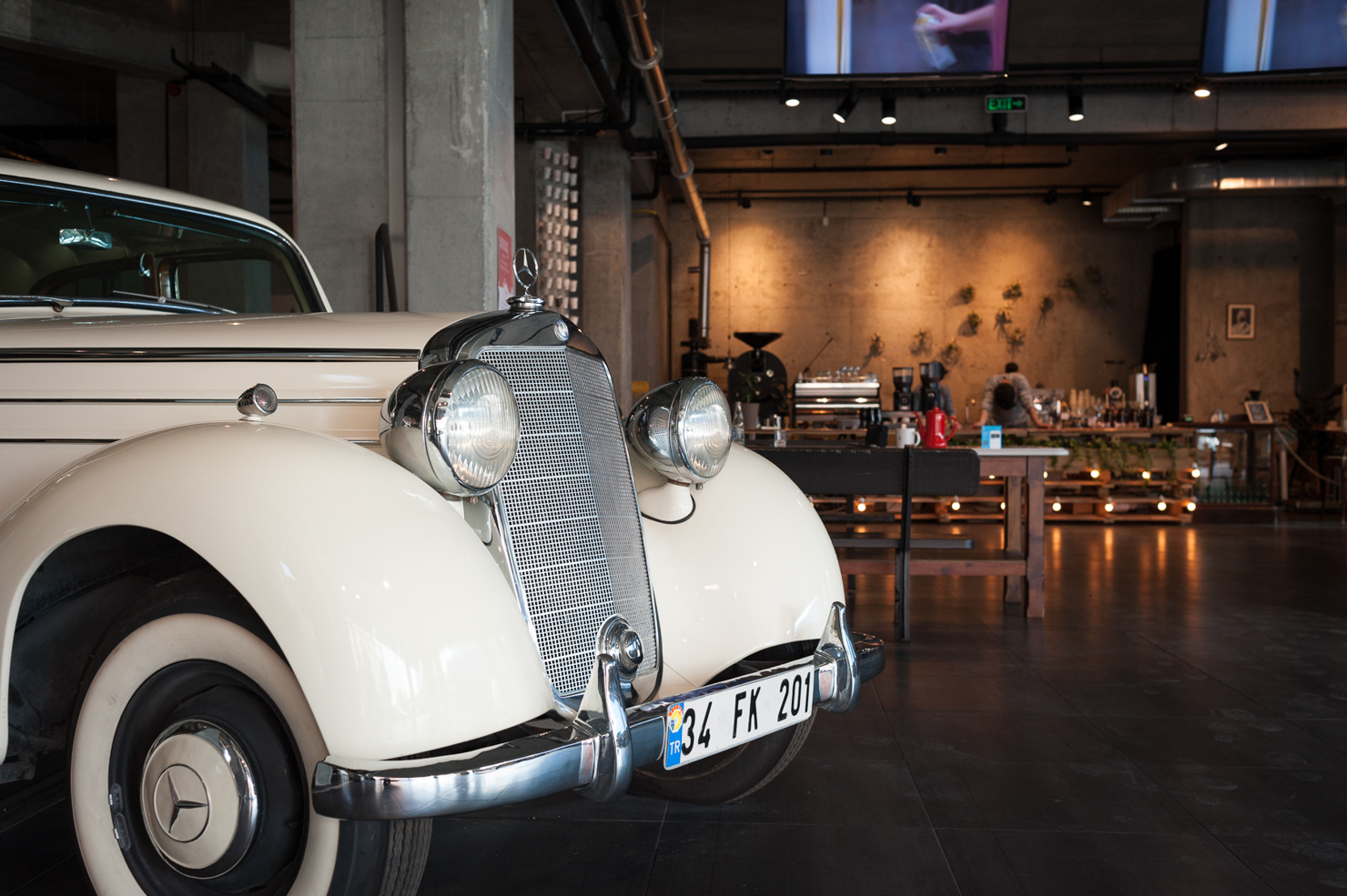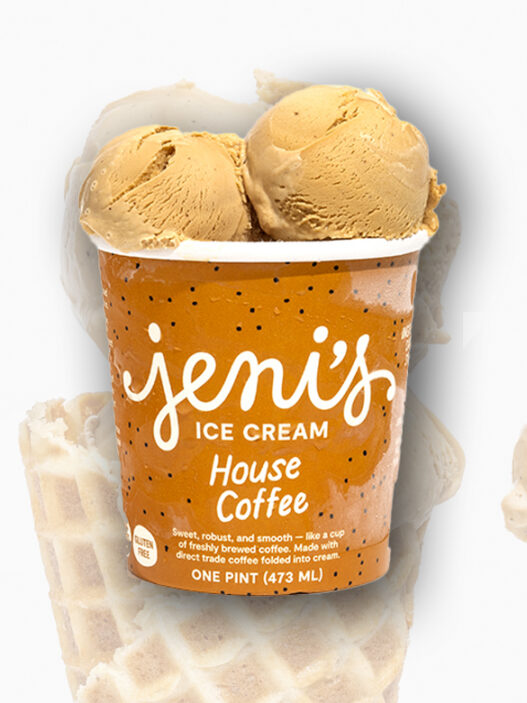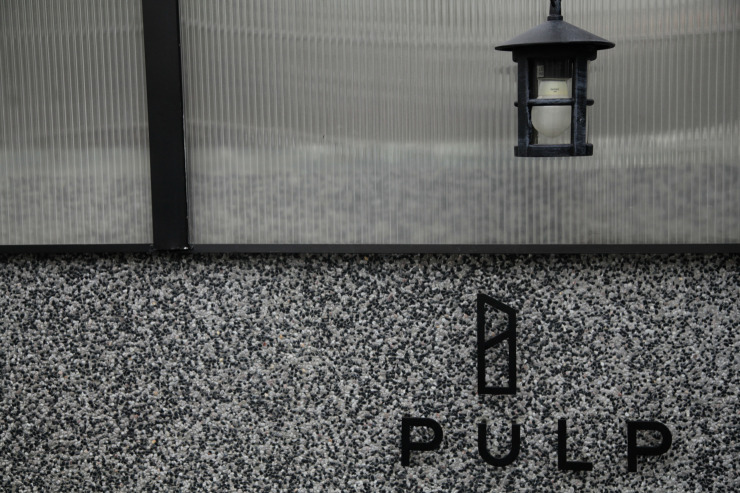
Kuala Lumpur is a city of malls. But I’ve got to be real with you: I hate malls. Which is how late last month I found myself walking down Jalang Riong, searching for a cafe hidden behind a fence of barbed wire.
PULP certainly wasn’t what I was expecting to find in Kuala Lumpur. Actually, I’m not really sure what I was expecting. Let’s all remember that I had just come from drinking charcoal coffee over in Indonesia. I guess my assumption has always been that Starbucks rules the coffee world in the big Southeast Asian cities. But as I learned, while there are still plenty of coffee chains in Kuala Lumpur, that’s changing.
“It’s not growing, it’s booming,” Marcus Foo, coffee purveyor at PULP, remarked to me about specialty coffee culture in Kuala Lumpur. He would know.
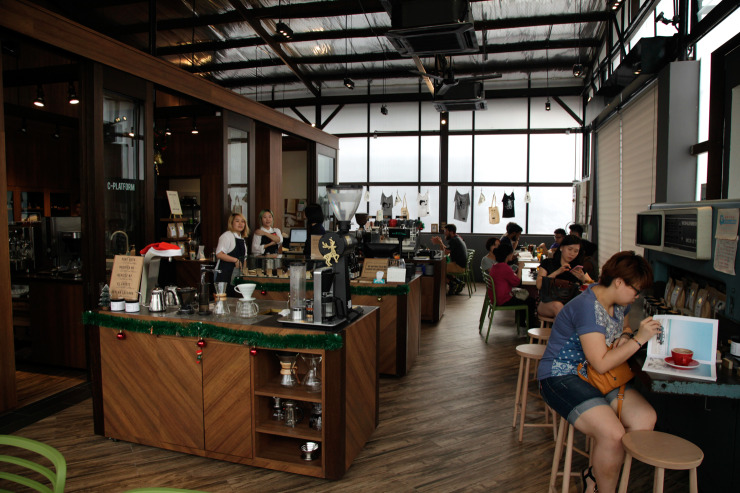
PULP isn’t just a cafe. If you want to make the coffee comparison, it’s less single origin and more blend: part cafe, part showroom, part educational center, and part workshop. It serves a distributor of coffee accoutrements for other businesses looking to serve specialty coffee, whether they be cafes or simply businesses that need to keep their employees well caffeinated. According to Foo, they work with a few trendy design and architecture firms. You have to keep those creatives fueled, and they do not accept capsules.
PULP is the Malaysian arm of Singapore-based Papa Palheta. Papa Palheta is both a cafe and roastery, run by Foo’s cousin, Leon Foo. Establishing themselves as a coffee retail resource in the region, Papa Palheta also serves as the distributor for Synesso machines in Singapore and Malaysia, as well as a variety of other coffee related brands.
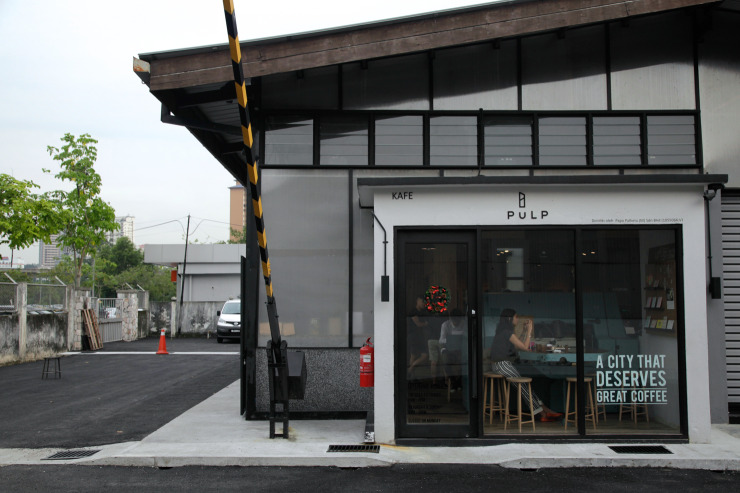
Setting out to do the same thing for the coffee scene in Kuala Lumpur, and Malaysia in general, PULP is as welcoming to potential specialty cafe startups as it is to home-brewers, selling good coffee and good looking espresso machines in a stunning place with a unique story.
Housed in the old paper-cutting space of Art Printing Works, PULP’s interior is designed to be functional; perhaps in homage to its roots. The site was built in 1965, and The Royal Press and Art Printing Works were in the process of revamping it when the Papa Palheta came along. There was enough of a link between the ethos of each business that they decided to collaborate, and, as you may have already gleaned, the name gives a nod to pulp in both the paper- and coffee-making processes.
As proof of this collaboration, I am offered a free Christmas card with my order—a cool letterpress card printed by The Alphabet Press (who has their studio in the same complex) in neon pink. You can certainly feel the old printing business in the space. There’s an old guillotine paper cutter from the printing business that nowadays serves as a big coffee table, with high stools placed around it, a funky form of repurposing.
Walking into PULP, it felt like a coffee exploratorium, the kind of place where you are meant to peek into cupboards and open doors. One of the coolest features that I enjoyed was the mobile counters. When I first came in, they were positioned one behind the other, so that they took up the majority of the space in the cafe area. But as the space filled up, Foo turned all of the counters—they’re built on wheels—to free up space in the room, essentially doubling the available area for people to sit and mingle.
“It’s a bit more of a sensory approach,” says Marcus Foo of the cafe and retail operation. This is not an I-will-tell-you-what-to-buy kind of place. You’re meant to be curious. Customers are encouraged to explore the space, and get to know their coffee and how to make it. While PULP is very much focused on business-to-business sales, it also has everything customers need to brew excellent coffee at home.
“I loved the Apple store in New York,” says Foo, “it’s very touch-and-feel.” PULP has been designed to emulate that concept. In the area that houses coffee accessories for sale like Reg Barber tampers and Acme & Co. cups, drawers pull out to become counter space, so that you can take objects out of the glass case and put them down to really assess the look and feel.
“You can see that the customers are a bit more discerning now,” Foo notes of the average Malaysian customer, pointing out that nowadays people are willing to pay a bit more for quality coffee. However, that doesn’t mean this is necessarily a widespread Malaysian trend; he’s quick to remind me that we’re still in the bubble of KL, where salaries can facilitate buying specialty coffee.
As the official Malaysian distributor for Synesso, there’s also a workshop area where the PULP team can do machine maintenance. For Foo, that’s a smart business strategy when it comes to building a culture of cafes who use good equipment. “I think people feel a little more comfortable when they see a workshop and you are repairing machines,” he says.
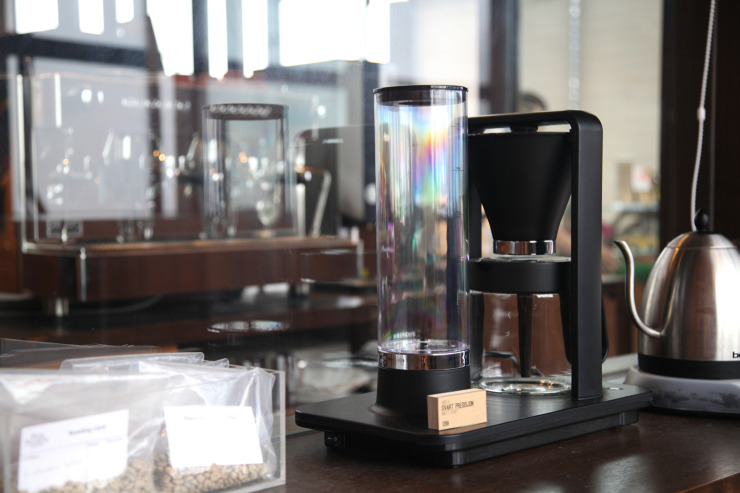
Because Foo is a bit of a coffee nerd (in the best way possible), there are also plenty of flashy coffee gadgets sitting around, from the Wilfa Precision Coffee Brewer (Designed with help from Tim Wendelboe), to Todd Carmichael’s Dragon Brewer, not available for sale, but there to geek out on.
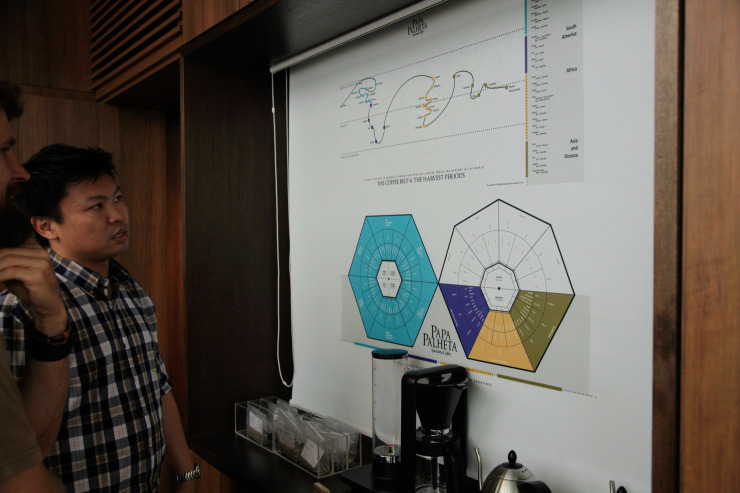
For PULP’s weekly cuppings, there’s a specially designed wall-sized chart in the educational area—similar to the pull-down maps you had in grade school—with both a flavor wheel and a map to show coffee origins and their seasons. And if there is anything in the entire space that embodied the commitment to quality coffee, it is the “capsules are dead” sign.
It was hot out, so I ordered a cold brew. Two in fact—they were that good—and a bag of beans for later. Everywhere you turn in PULP there’s eye-catching bits of design, and the handsome bottling of their cold brew is no exception.
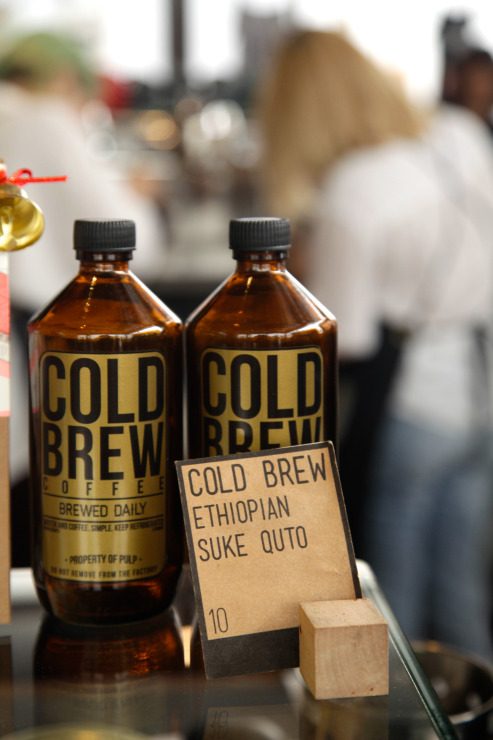
Wandering through the retail, I pined over the quirky tote bags sporting coffee jokes; “balanced and heavy bodied” it said under a Chemex with an elephant on top. How do you say no to that?
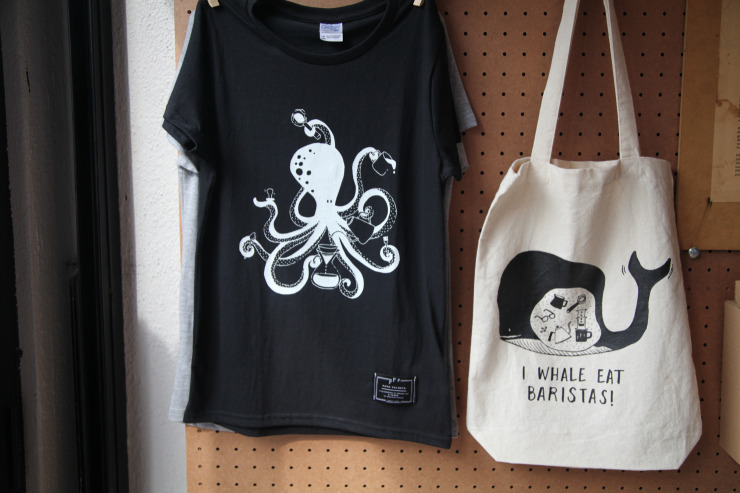
I watched as the space filled up, proof that the PULP is turning into a late afternoon hangout for in-the-know locals. If this is what specialty coffee culture is shaping up to be in Malaysia, I am definitely on board.
Anna Brones (@annabrones) is a Sprudge.com desk writer based in Paris, and the founder of Foodie Underground. Read more Anna Brones on Sprudge.
All photos by Anna Brones for Sprudge.com




